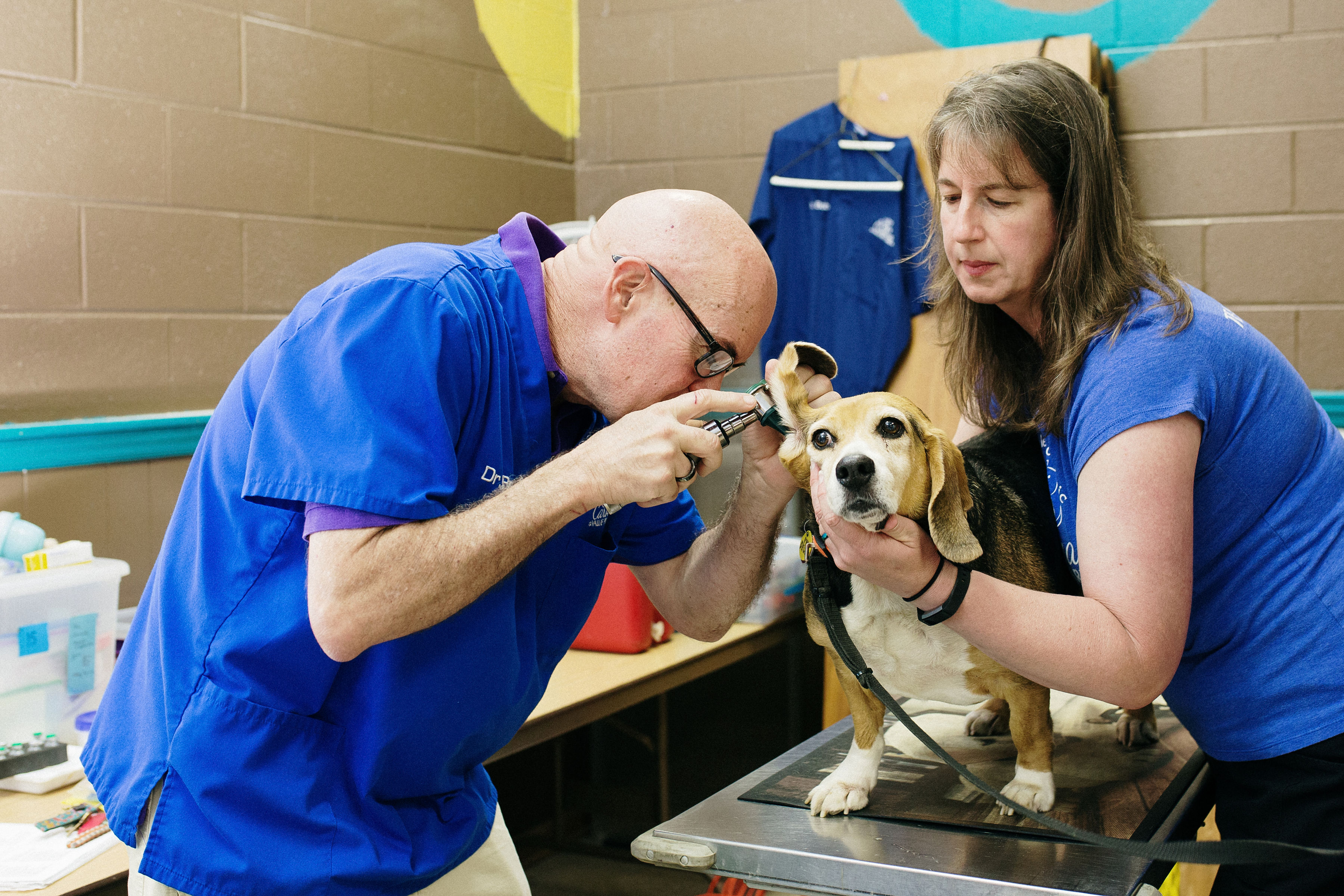Q. My dog keeps scratching at her ears and they smell funny. Can you tell me what I can do to help her?
Itchy skin! Stinky ears! These are among the most common medical problems that veterinarians see in dogs. Can you imagine how miserable your dog must be when he or she is constantly itching, scratching, chewing, licking, rubbing their ears and body?
We can help!
First: understand that nearly every ear and skin problem that we see is a result of allergies. Even if it seems like we’re dealing with two different problems, they are almost always linked together.
We typically see two common sources of allergies:
- Seasonal or environmental allergies—pollens, dusts, molds, grass, weeds, etc.
- Food allergies—usually the main protein source in the pet food. For dogs, chicken- or beef-based pet foods are the most common causes.
We also regularly encounter yeast infections in dogs’ ears. You’ll know it’s a yeast infection if you are smelling what some pet owners describe as a “Dorito” odor coming from the ears or skin. (Sorry to put you off that bag of Cool Ranch chips you were going to grab at the store).
The good news is that those yeast infections are fairly easy to treat. The bad news is that since the yeast has found a comfy home in to one or both ears, it will often return—that means for some dogs, it may be necessary to prevent the yeast infection from coming back after resolving the first flare-up.
When we encounter a bacterial infection of the ears, the affected ear(s) will have a truly nasty, gag-a-maggot odor to them, and those ears are often as painful for your dog as they smell. These can be much more challenging to treat because unlike yeast, there are a variety of different bacteria that can cause infection.
Unfortunately, there’s no antibiotic that will eliminate every bacterial infection we encounter. For some dogs, especially if a bacterial infection keeps coming back, then the infection should be ‘cultured’ to identify the type of bacteria involved, then determine the most appropriate antibiotic to use.
What’s most important is that you bring your pet in as soon as possible after you notice a problem, because the longer an ear (or skin) issue persists, the harder it can be to manage. Please seek help for your pet either through us or another full-service veterinary clinic—taking care of this problem sooner rather than later might not only save you time and expense, it will vastly improve your pet’s quality of life.
Here to help!
Dr. Bob Parrish & the Carolina Value Pet Care Team

